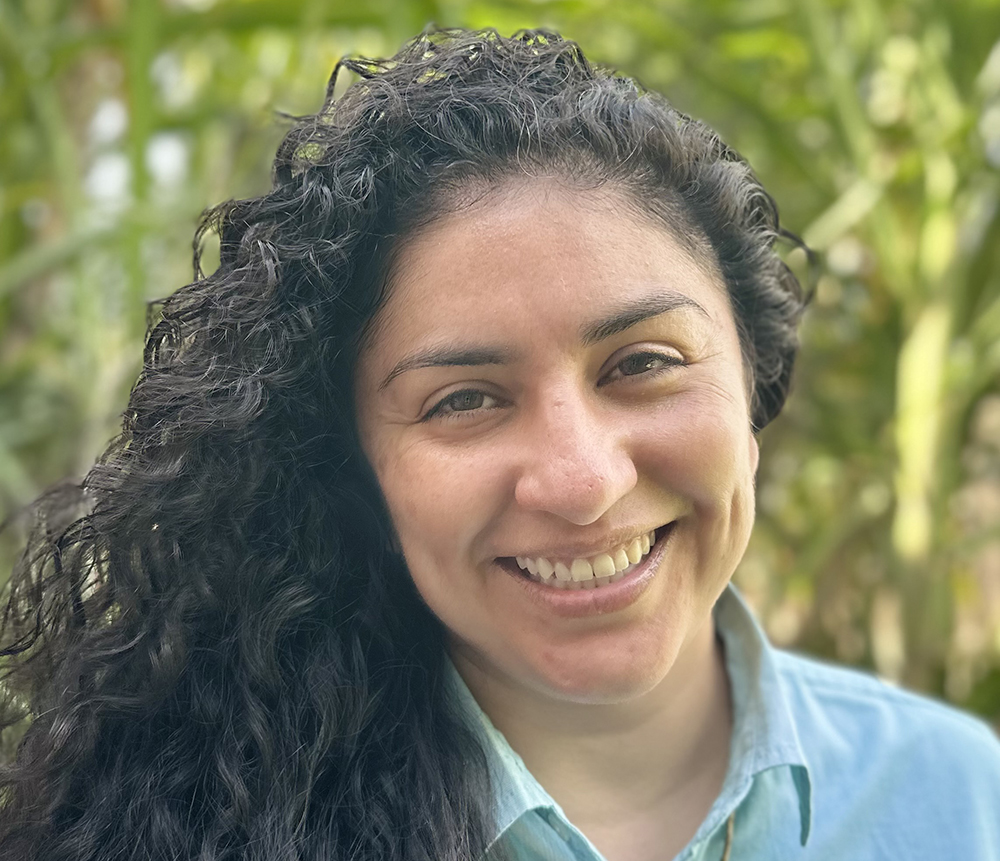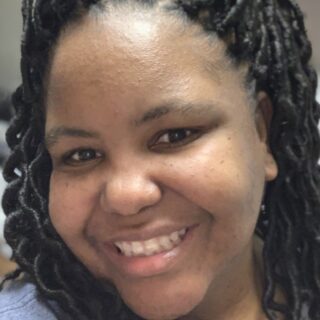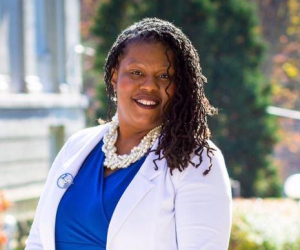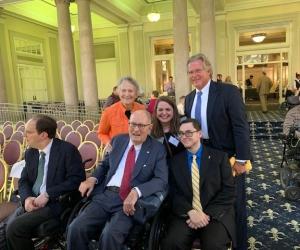
PhD Student briana rodríguez Receives NAEd/Spencer Dissertation Fellowship
briana rodríguez (they/them), a PhD student at the University of Pittsburgh School of Education, has been accepted into the 2024 National Academy of Education (NAEd)/Spencer Foundation Dissertation Fellowship Program.
rodríguez is one of 35 scholars participating in the prestigious program, which supports dissertation projects that bring innovative and insightful approaches to the history, theory, analysis, or application of formal and informal education. Fellows receive $27,500 to complete their dissertations and can participate in professional development and mentorship opportunities.
As a student in Pitt Education’s PhD in Learning Sciences and Policy program, rodríguez is interested in examining the purpose of education, with an emphasis on mathematics education. By reflecting on the philosophy of mathematics, rodríguez calls attention to who has the power to decide what is mathematics and who does it.
“As a secondary mathematics educator, I was committed to building curriculum for and with my students, where we addressed topics important to them and their community,” says rodríguez. “The more we dived into community issues, the more I began to see the ways mathematics was complicit in the harming and oppression of minoritized people. I have dedicated by doctoral journey to understanding the ways mathematics, and by extension STEM, has been used as a tool for the reification of settler colonialism and modernity.”
Their dissertation project, “Maya Mathematics: A Practice of Relation,” provides insight into how the Maya and Nawa-Pipil people in Guatemala and El Salvador understand and practice mathematics. In collaboration with Maya and Nawa community educators, rodríguez explores the ways mathematical knowledge has been constructed and practiced in the past, present, and future through popular education programs.
“As a Maya Ch’orti’, I come from a legacy of mathematicians and scientists who ask questions and co-construct knowledge in community. My dissertation project is only one way I hold myself accountable to my communities,” says rodríguez. “As a non-binary person, I refuse to see mathematics as having only one definition: as being universal. It is through a non-binary Maya lens that I see mathematics as being pluriversal and encompassing a wide range of worldviews, values, and commitments.”
During their second year in the PhD program, rodríguez received a grant to participate in a Maya popular education project in Guatemala, where they engaged in deep study on Maya history, traditions, language, astronomy, and mathematics. That experience, along with the School of Education’s Freedom Seminars, help shaped rodríguez’s research focus on mathematics education.
“It was the Freedom Seminars that offered me a space to reflect and ask questions related to education, Indigenous autonomy, abolition, and liberation,” says rodríguez. “It was because there was a space to think critically about education and to ask questions about systems that I am able to think differently about learning and inquiry.”
In addition to the Freedom Seminars, rodríguez credits the scholarly community at Pitt Education for shaping their learning experience.
“I am especially grateful to Pitt faculty who guided me through this fellowship application process: Sabina Vaught and Leigh Patel. There are so many great scholars I am honored to learn from, including graduate students in our School of Education,” says rodríguez.




